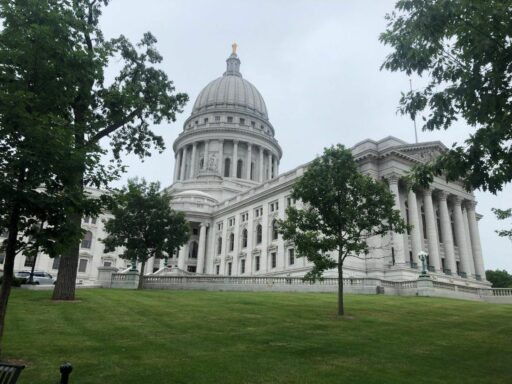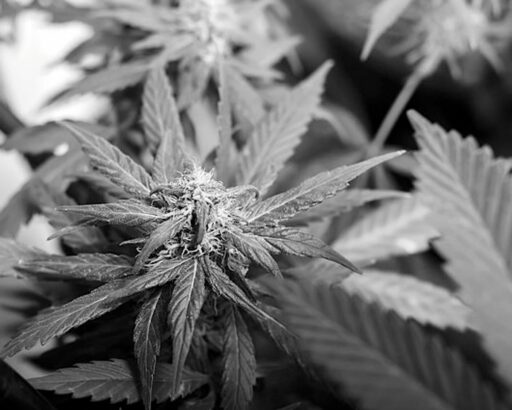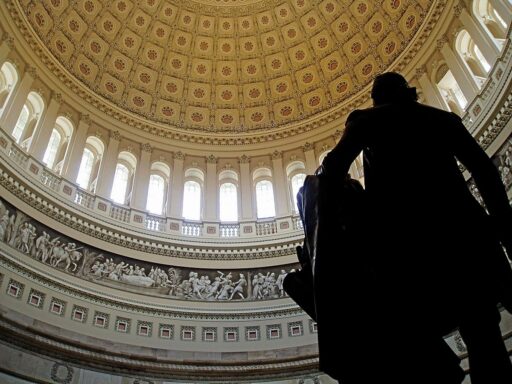The debate over marijuana legalization in Wisconsin has been a contentious issue, marked by a series of legislative efforts and public opinion shifts. This article provides a detailed overview of the historical context, political dynamics, economic and social implications, and the challenges faced on the path to legalization in the Badger State. With a renewed push from Democrats and some movement within the Republican ranks, Wisconsin’s journey towards cannabis reform reflects a microcosm of the national conversation on drug policy and reform.
Key Takeaways
- Despite repeated efforts, including recent pushes by Democrats and some Republicans, Wisconsin remains one of the few states without a legal marijuana program.
- Public opinion in Wisconsin appears to favor marijuana reform, yet legislative action has been stymied by political divides, particularly Republican opposition.
- Governor Tony Evers has shown consistent support for legalization, but his proposals have been met with resistance from the Republican-controlled legislature.
- Economic benefits, social justice, and public health are central to the legalization debate, with advocates highlighting potential gains and opponents raising concerns.
- The future of marijuana legalization in Wisconsin hinges on bipartisan cooperation, with a focus on decriminalization as a potential interim step towards comprehensive reform.
Historical Context and Current State of Cannabis Legislation in Wisconsin

Previous Attempts at Legalization
Wisconsin’s journey towards marijuana legalization has been marked by a series of legislative efforts and public debates. The state has seen numerous bills introduced, aiming to reform its cannabis laws, but none have successfully passed the legislative gauntlet. Notably, the Marijuana Justice Act of 2019 and the MORE Act of 2019 were significant attempts at the federal level that resonated within the state, reflecting a growing push for change.
The table below outlines some key legislative actions related to cannabis reform:
| Year | Legislation | Outcome |
|---|---|---|
| 2011 | Ending Federal Marijuana Prohibition Act | Not Passed |
| 2013 | Cole Memorandum | Implemented |
| 2014 | Rohrabacher–Farr amendment | Passed |
| 2018 | STATES Act | Not Passed |
| 2019 | SAFE Banking Act | Not Passed |
| 2022 | Cannabis Administration and Opportunity Act | Pending |
While the political landscape has been challenging, the persistence of advocates and legislators alike signals a continued effort to shift the status quo. The recent inclusion of language in the Consolidated Appropriations Act, 2024, to study state legalization is a testament to the evolving conversation around cannabis policy.
The Role of Public Opinion and Voter Sentiment
Public opinion in Wisconsin has shown a clear trend towards supporting more progressive cannabis laws. In the 2018 advisory questions, voters overwhelmingly signaled their approval for cannabis reform. This sentiment is not isolated to urban areas but is widespread across various counties and demographics.
The following table illustrates the support for medical and adult-use cannabis in the 2018 advisory questions:
| County/City | Medical Cannabis Support | Adult-Use Cannabis Support |
|---|---|---|
| County A | 89% | 76% |
| County B | 67% | 60% |
| City X | 85% | 72% |
| City Y | 88% | 69% |
Despite this clear mandate from the electorate, there has been a notable disconnect between public opinion and legislative action. The push for legalization faces a complex political landscape, where elected leaders appear to lag behind their constituents’ wishes.
The momentum generated by public support is crucial for overcoming the hurdles in the path to legalization. It reflects a growing consensus that the current laws are out of step with the views of the majority of Wisconsinites.
Comparative Analysis with Other States
When examining the landscape of cannabis legislation across the United States, Wisconsin’s position becomes clearer in the context of national trends. Wisconsin remains one of the few states where marijuana is entirely illegal, both for recreational and medical use. This contrasts sharply with states like Colorado and California, where cannabis has been fully legalized and integrated into the economy.
The following table provides a snapshot of the legal status of cannabis in various states, highlighting the diversity of approaches:
| State | Medical Use | Decriminalized | Fully Legal |
|---|---|---|---|
| Wisconsin | No | No | No |
| Colorado | Yes | Yes | Yes |
| California | Yes | Yes | Yes |
| Georgia | No | No | No |
This comparative analysis reveals a patchwork of policies, with some states embracing legalization and others, like Wisconsin and Georgia, maintaining strict prohibitions. The disparities in enforcement and arrest rates are also notable; states with legalization laws tend to have lower disparities in marijuana-related arrests.
The push for legalization in Wisconsin is set against a backdrop of evolving laws and shifting public sentiment across the country. As more states move towards legalization, the pressure increases for Wisconsin to reconsider its stance.
Political Dynamics and Partisan Divides

Republican and Democratic Stances on Cannabis
In Wisconsin, the political landscape surrounding cannabis legalization is sharply divided along partisan lines. Republicans have historically opposed full legalization, focusing instead on more restrictive medical marijuana bills. However, recent efforts by the GOP to pass a medical cannabis bill have stalled, with key Republican figures unable to reach a consensus.
On the other hand, Democrats, led by Governor Tony Evers, have shown support for broader cannabis reform. Evers has voiced support for legalizing medical marijuana as a step toward full legalization, aligning with the overwhelming public sentiment favoring cannabis policy reform.
The impasse within the Republican party and the contrasting Democratic push for legalization highlight the complex political dynamics at play in Wisconsin’s journey towards cannabis reform.
Despite the political divide, there is a bipartisan effort underway with a "decriminalization" bill, AB 861, which may represent a compromise and a step forward in aligning state laws with the will of the voters.
Recent Legislative Actions and Proposals
In the ongoing debate over cannabis legalization in Wisconsin, recent legislative actions have signaled a shift in the conversation. AB1040, a bill relating to medical cannabis, has been a focal point, granting rule-making authority and outlining penalties for non-compliance. Despite bipartisan support, this bill did not reach a vote in the Assembly, highlighting the complex dynamics at play.
The Wisconsin Legislature has seen a flurry of activity with multiple proposals, yet the path to legalization remains fraught with political maneuvering.
The Assembly Speaker has expressed a desire to pass medical cannabis legislation, reflecting a growing recognition of its potential benefits. Governor Evers has also been proactive, proposing decriminalization and medical cannabis as part of his budget. However, the Consolidated Appropriations Act, 2024, with its directive for the Department of Justice to study state legalization, suggests a broader federal reassessment may influence state-level decisions.
Governor Evers’ Position and Efforts
Governor Tony Evers has been a vocal advocate for the decriminalization and medical use of cannabis in Wisconsin. His proposals have often been met with resistance from the Republican-controlled Legislature, yet he remains steadfast in his support for reform. Evers’ commitment to advancing cannabis legislation is evident in his inclusion of decriminalization and medical cannabis in the state budget proposals.
Governor Evers’ efforts reflect a broader push towards embracing the potential benefits of cannabis legalization, while also navigating the complex political landscape that surrounds this issue in Wisconsin.
Despite the challenges, Evers has made several attempts to influence cannabis policy:
- In 2019, he proposed decriminalizing possession of small amounts of marijuana.
- He included provisions for medical cannabis in his budget.
- Evers has promised to veto any bill that he believes would make Wisconsin less safe and inclusive, reaffirming his stance on progressive social policies.
The table below summarizes key legislative actions related to Governor Evers’ position on cannabis:
| Year | Action |
|---|---|
| 2019 | Proposed decriminalization in state budget |
| 2019 | Included medical cannabis in state budget |
| 2023 | Vetoed bill contrary to inclusive policies |
Looking ahead, Governor Evers is likely to continue advocating for cannabis reform, aiming to align Wisconsin’s policies with the evolving national perspective on marijuana legalization.
Economic and Social Implications of Legalization

Potential Economic Benefits
The legalization of marijuana in Wisconsin could unlock significant economic benefits. Tax revenue from cannabis sales offers a promising source of income for the state, which can be allocated to various public services and infrastructure projects. The experience of other states suggests that the initial years following legalization can bring substantial fiscal gains.
- Job creation in cultivation, distribution, and retail sectors
- Boost to ancillary businesses such as security, legal services, and marketing
- Increased tourism with the attraction of a legal cannabis market
The economic ripple effect of legalizing cannabis extends beyond direct sales. It stimulates local economies, supports ancillary industries, and can potentially reduce law enforcement and judicial costs related to marijuana offenses.
While the exact figures will depend on the specifics of Wisconsin’s legislation, the table below provides a snapshot of the economic impact observed in similar markets:
| Year | Tax Revenue Generated | Jobs Created |
|---|---|---|
| 1st | $XX million | X,XXX |
| 2nd | $XX million | X,XXX |
| 3rd | $XX million | X,XXX |
These projections are conservative estimates and actual outcomes could vary. Nonetheless, they underscore the potential for marijuana legalization to be a boon for Wisconsin’s economy.
Social Justice and Criminal Justice Reform
The legalization of marijuana in Wisconsin carries significant implications for social justice and criminal justice reform. Unequal enforcement of cannabis laws has long been a point of contention, with data showing stark racial disparities in arrests. For instance, a report by the ACLU highlighted that in 2018, Black individuals in Wisconsin were 4.2 times more likely to be arrested for cannabis possession than white individuals, despite similar usage rates.
Legalization could serve as a critical step towards rectifying these disparities, reducing the total number of arrests and refocusing law enforcement efforts on more serious crimes.
The push for legalization also intersects with broader criminal justice reform initiatives. Efforts to reduce the burden on the judicial system and protect civil liberties are ongoing, with recent legislation aimed at enhancing privacy protections for judges and regulating demonstrations. While these efforts are distinct from cannabis policy reform, they reflect a growing awareness of the need for a more equitable legal system.
In cities like Kenosha, La Crosse, Madison, Milwaukee, and Oshkosh, the conversation around legalization is not just about personal freedom but also about the practicalities of law enforcement and the realities of cross-border movement of cannabis products.
Public Health Considerations
The debate over the legalization of marijuana in Wisconsin encompasses significant public health considerations. The classification of cannabis as a controlled substance has historically influenced perceptions of its safety and potential medical applications. Proponents of legalization argue that regulated access could lead to better quality control and safety standards, potentially reducing the risks associated with unregulated use.
- Potential medical benefits of cannabis are a key point in the discussion, with some advocating for its use in treating a range of conditions.
- Concerns about the impact of legalization on youth and vulnerable populations remain at the forefront of the debate.
- The balance between preventing misuse and providing access to those who could benefit from medical marijuana is a delicate one.
The introduction of a state-run medical marijuana program is seen by some as a step towards ensuring that cannabis, if legalized, is distributed responsibly and with due consideration for public health outcomes.
Challenges and Roadblocks to Legalization

Opposition from Key Political Figures
The path to legalizing marijuana in Wisconsin has been fraught with opposition from influential political figures. Wisconsin Republicans appear to be at an impasse over the proposal to legalize medical marijuana, with key leaders expressing their resistance. Assembly Speaker Robin Vos, for instance, has voiced his concerns, indicating a significant hurdle within the state’s legislative body.
Despite bipartisan support for certain cannabis-related proposals, they have been conspicuously absent from the Senate’s agenda, particularly on crucial voting days. This omission underscores the challenges proponents face in advancing legislation.
The reluctance to schedule a vote on medical marijuana legalization reflects a broader pattern of opposition that extends beyond party lines, affecting bipartisan measures as well.
The opposition is not limited to new proposals; even bills with widespread support have failed to reach the voting stage, suggesting a systemic resistance to change within the state’s political landscape.
Legal and Regulatory Hurdles
The journey to legalize marijuana in Wisconsin is fraught with legal and regulatory hurdles that complicate the path forward. A key obstacle is the alignment of state legislation with federal laws, which currently classify cannabis as a Schedule I drug. This classification creates a significant barrier for states seeking to legalize and regulate marijuana, as it can lead to conflicts between state and federal authorities.
In Wisconsin, the legislative process itself presents challenges. Bills must navigate through a complex system of committees and votes, often facing opposition from key figures who can stall or veto proposals. The recent medical marijuana bill underscores the difficulties, as it faces resistance in the Wisconsin Senate, particularly due to its restrictive nature, limiting access only to those with severe chronic diseases.
- Court cases impacting cannabis legislation:
- Leary v. United States (1969)
- Gonzales v. Raich (2005)
- Moncrieffe v. Holder (2013)
The interplay between state initiatives and federal oversight remains a central tension in the debate over marijuana legalization. Without a clear resolution to these conflicts, Wisconsin’s efforts to establish a legal cannabis market are hindered.
The Debate Over Medical vs. Full Legalization
In Wisconsin, the conversation around cannabis legalization is bifurcated between those advocating for medical use and those pushing for full recreational legalization. The distinction between these two paths is a significant factor in legislative discussions. Proponents of medical legalization argue that it is a necessary step to provide relief to patients with qualifying conditions. On the other hand, advocates for full legalization cite the potential for economic growth and the elimination of the illicit market.
The debate is not just about the legality but also about the scope and control of cannabis distribution within the state.
The Assembly Republicans’ recent bill, which would allow Wisconsinites with certain health conditions to access smokeless medical marijuana, highlights the cautious approach taken by some legislators. This bill’s fate may hinge on the support it garners within the GOP-dominated legislature. Meanwhile, the Democratic push for broader legalization reflects a different vision, one that aligns with a growing trend across the United States.
- Medical Marijuana Bill: Limited to smokeless forms and specific health conditions.
- Full Legalization Efforts: Aim to establish a regulated market for all adults.
The tension between these approaches underscores the complexity of cannabis policy reform in Wisconsin. The outcome of this debate will shape the state’s legal landscape for years to come.
Looking Forward: The Path to Legalization in Wisconsin

Prospects for Future Legislation
The landscape for marijuana legalization in Wisconsin is evolving, with new proposals and shifts in political will indicating a potential change on the horizon. The reintroduction of a medical marijuana bill in January by Assembly Speaker Robin Vos suggests a renewed focus on the issue within the state legislature. This move aligns with broader national trends, as seen in the recent language of the Consolidated Appropriations Act, 2024, which hints at federal openness to state-led cannabis regulation.
While the specifics of the upcoming bill remain under wraps, it is expected to address key concerns such as taxation, licensing, and the scope of medical use. The bill’s success will hinge on the ability to bridge partisan divides and align with public sentiment, which has shown increasing support for cannabis reform. The following points outline the critical factors that will influence the bill’s trajectory:
- Crafting legislation that balances regulatory oversight with personal freedoms
- Ensuring equitable access and distribution of licenses
- Addressing public health and safety concerns
- Navigating the interplay between state initiatives and federal law
The path to legalization in Wisconsin is complex, but the reintroduction of the medical marijuana bill marks a significant step forward. It reflects a growing recognition of the potential benefits and a willingness to engage in meaningful dialogue around the issue.
The Role of Advocacy and Grassroots Movements
In the push for marijuana legalization in Wisconsin, advocacy and grassroots movements have been pivotal. Organizations like NORML have been at the forefront, working tirelessly to reform marijuana laws since 1970. Their efforts include educating the public, lobbying lawmakers, and organizing campaigns to amplify the voice of consumers and advocates alike.
- NORML’s mission is to ensure that consumers’ interests are heard and taken seriously.
- They engage in various activities such as legislative reports, legal seminars, and direct meetings with political figures.
The Marijuana Policy Project (MPP) also plays a significant role, focusing on raising funds and launching initiatives like the Cannabis Justice Fund. These organizations highlight the importance of sustained, community-driven efforts in shaping policy and public opinion. As the debate continues, the role of these movements remains crucial in influencing the path to legalization in Wisconsin.
Predictions and Analysis for Upcoming Sessions
As Wisconsin approaches new legislative sessions, the debate over marijuana legalization remains a contentious issue. The likelihood of passing a plan to legalize medical marijuana appears slim, given the current political climate and recent reports. The bill in question would restrict access to severely ill patients and propose a limited number of state-run dispensaries, excluding the option for smokable marijuana.
While predictions are inherently uncertain, the trend in public opinion suggests a gradual shift towards favoring legalization. This shift, however, may not translate into immediate legislative action due to entrenched partisan positions.
The upcoming sessions will likely see renewed efforts by advocates to push for legalization, with a focus on the economic and social justice benefits. Yet, the success of these efforts will hinge on overcoming significant opposition from key political figures and navigating complex legal and regulatory landscapes.
Conclusion
As the legislative tides churn in Wisconsin, the push to legalize marijuana has seen a tumultuous journey marked by intermittent progress and setbacks. Despite the Assembly Speaker’s advocacy for medical cannabis and Governor Evers’ repeated attempts to include decriminalization and medical marijuana in the state budget, partisan divides have stymied these efforts. The Republican-led legislature has rejected comprehensive bills, and while a limited GOP medical marijuana bill has failed, a bipartisan decriminalization bill offers a glimmer of hope. The state’s cannabis laws remain out of step with public sentiment, and as the debate continues, it is clear that the path to legalization in Wisconsin is fraught with political complexities. Advocates and lawmakers alike must navigate these waters with persistence and compromise if they wish to align the state’s policies with the will of its voters.
Frequently Asked Questions
What is the current legal status of marijuana in Wisconsin?
As of the latest updates, marijuana remains illegal in Wisconsin for both recreational and medical use, with the exception of a cannabidiol-only medical marijuana law. Efforts to legalize medical and adult-use marijuana have been made but have not passed.
Have there been any recent attempts to legalize marijuana in Wisconsin?
Yes, there have been recent attempts. Wisconsin Democrats launched a new marijuana legalization campaign, and Governor Tony Evers has been advocating for legalization. However, a Republican-led medical marijuana bill failed to move forward during the 2024 legislative session.
What is the stance of Wisconsin’s Republican and Democratic parties on marijuana legalization?
Wisconsin’s Democratic Party has been pushing for the legalization of both medical and adult-use marijuana. The Republican Party has considered a limited medical marijuana bill, but there is still significant opposition, and recent efforts have stalled.
What economic benefits could marijuana legalization bring to Wisconsin?
Legalization could bring economic benefits such as job creation, increased tax revenue, and business opportunities in the state. However, specific figures depend on the structure of the legalization and regulatory framework implemented.
How could marijuana legalization impact social justice in Wisconsin?
Marijuana legalization could lead to criminal justice reform, reducing incarceration rates for marijuana-related offenses. It could also address racial disparities in marijuana-related arrests and convictions.
Is there any possibility for marijuana decriminalization or legalization in Wisconsin in 2024?
While full legalization efforts have faced challenges, there is a bipartisan decriminalization bill, AB 861, that could potentially bring Wisconsin’s cannabis laws closer to public opinion. However, the outcome is uncertain and depends on the legislative process.





